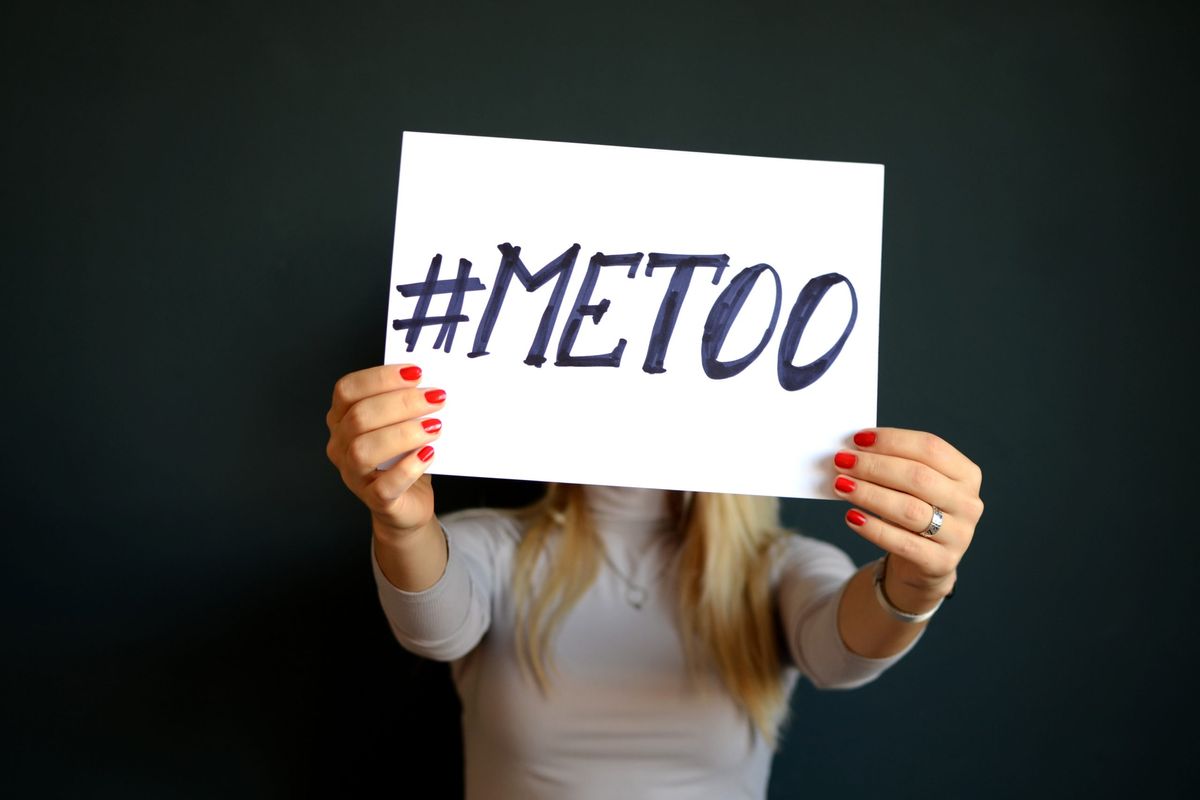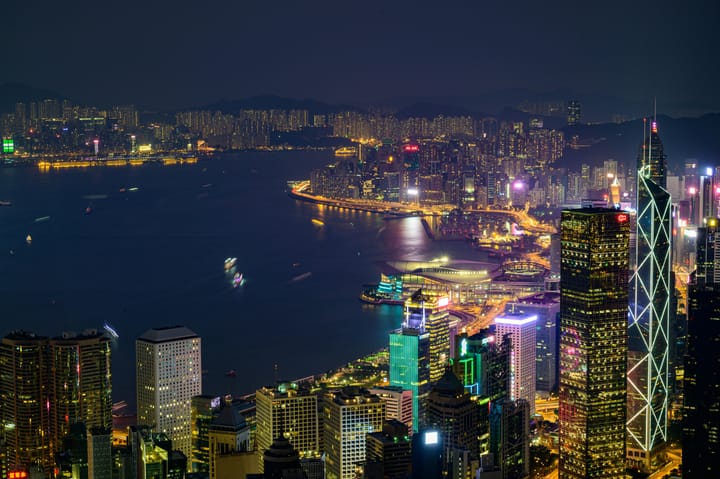Why I’m not scared of the #metoo movement, and I’m a man

A few minutes every morning is all you need.
Stay up to date on the world's Headlines and Human Stories. It's fun, it's factual, it's fluff-free.
TMS NOTE: Our guest author has requested to remain anonymous to ensure that the identities of the unnamed women described in the article cannot be discovered.
In September 2018, Dr. Christine Blasey Ford testified to the US Senate that Supreme Court nominee (now Supreme Court Justice) Brett Kavanaugh had sexually assaulted her when they both were teenagers. Responding to both her testimony and the #MeToo movement in general, President Donald Trump stated that it is “a very scary time for young men in America.”
Well, I am an American cisgender, heterosexual male, and I am not afraid.
No, my lack of fear is not bravado. Nor is it a matter of defiance in the face of Trump’s continual fear mongering, like Alexandria Ocasio-Cortez’s impassioned response to one of his many racist Twitter tirades.
Here is how my personal experience and a bit of soul searching have simply and naturally brought me to a place where #MeToo doesn’t scare me.
1. I have seen how women are pressured to remain silent.
During my first year of college, a young woman who lived down the hall in my dorm was repeatedly and horrifically sexually harassed by several young men on the floor. I didn’t know about the harassment when it happened. I only knew that one of the brightest, liveliest, most confident people I had met during my first few weeks on campus had suddenly gone quiet.
When I later learned what these men had done (and I can leave out the word “allegedly”, since the men freely bragged about their so-called pranks), I knew that they hadn’t just violated “safe spaces” principles. They had committed at least one, and probably multiple, felonies.
As this realization was dawning on me, I was stunned to hear both male and female students, including the Resident Advisors (RAs) for the dorm, pushing the woman to “not make a big deal out of it”. In the midst of trying to process a nightmare, she was being told that it was her responsibility to protect those who had tormented her.
Drawing on inner strength that far too many women expend far too young, that woman has gone on to achieve the success she always deserved. But I will never forget seeing her face during those weeks of agony. The image regularly reminds me that whatever harm #MeToo might cause, it can never compare to the cruelty of telling a terrified 18-year-old that her suffering doesn’t matter.
[article_ad]
2. I understand that women are people. Completely. Really.
There are a lot of people more qualified than I am to write about objectification – what a female friend of mine calls “the idea of women as collections of body parts” instead of as people – but we all have to face the reality that it occurs, a lot.
Writer and editor Marie Shear first wrote in 1986 that “Feminism is the radical notion that women are people.” Dozens of bumper stickers and t-shirts still bear the slogan today, showing how real the fight is for women who simply want their humanity fully appreciated. The very least men can do is to recognize the long history of patriarchy that created this struggle.
Two of my first great role models in life were female, and I have never met two more brilliant human beings. The hope of living up to their example motivates me to this day. Frankly, it’s the reason that most people think I’m a lot smarter than I probably am.
Seeing women as anything less than whole people would be betraying those who made me what I am.
Fully understanding that women are people means many things. For one thing, it means recognizing that the fact I experience feelings of romantic and physical attraction around women says far more about me than it does about them. It’s not their doing, it isn’t a product of how they might dress, and it most certainly isn’t their problem.
Recognizing the person and not just the gender identity also means realizing that when women react negatively to a situation, they do so for reasons. Sure, there are some women who falsely accuse men; some people are just bad people. However, in the vast majority of cases, a woman’s feelings of discomfort with a man’s words or actions come from a reasonable, human place.
Recognizing women as people matters in the #MeToo era because…
Recently, I have heard both male and female friends talk of men worrying about being alone with women, for fear of “accidentally sexually harassing” them. Granted, misunderstandings can occur between men and women, just as they occur between all people, and the stakes are a little higher these days. But when has running away and hiding ever solved anything?
I am not naïve. I realize that seeing women as people doesn’t guarantee that I’ll never be blind-sinded by a revelation that a woman found something I said inappropriate. That has actually happened, quite recently.
I won’t lie, the incident shook me. I worried about my reputation, about not being trusted in the future. However, crediting the woman in question with having a human mind forced me to search my own memory, to examine our conversations for clues about her point of view. It meant believing that she was not imagining things, but rather seeing something I had missed.
Upon reflection, it was clear that I had been oblivious to a very unfortunate and completely unintended second meaning of the words I had used. I learned from the experience, the woman and I are friends now, and I am a better person for it all. And I’m even less afraid of #MeToo than before.
[article_ad]
3. Let’s keep things in perspective.
Now for the confession: I, the author of this article, am an abuse survivor.
It was not sexual abuse, and I would never suggest that my experiences are equivalent to the horrors endured by survivors of sexual harassment or attacks. Nevertheless, in my limited way, I know what it means to desperately search for a way to live as an integrated person when someone has gone to great lengths to disintegrate you.
Imagine a #MeToo worst-case scenario. Suppose a prominent, male public figure faces allegations like those brought by multiple women against Brett Kavanaugh. Suppose in this case that all the accusations are false, but people in power believe them and act upon them. The male public figure’s reputation and career are severely harmed by untrue claims.
Now imagine that a magical being grants this same male public figure a chance to regain his good name, with one condition. He must relive his life, but in this new version of his life, he will be sexually assaulted, and he can never, ever tell the story of his agony. Throughout his successful, much-admired life, he must secretly live with the terror of his own memories.
Which is easier to rebuild: a damaged reputation or a soul ravaged by trauma?
The overwhelming majority of women who come forward with stories of sexual harassment or assault have fought life-shattering demons for years or decades. About 1 in 6 American women has survived a sexual assault; 40% or more have endured serious sexual harassment. Do we really think #MeToo might significantly damage the lives of nearly half of American men?
Obviously, any man who is accused of wrongdoing deserves the chance to defend himself. Yet when Trump suggests that the possibility of men’s reputations being damaged is somehow scarier than having tens of millions of women silently enduring anguish, a reasonable person must admit that the president has lost all perspective.
4. I want my life to matter.
Like most people, I hope my life contributes to the world becoming a better place for those who come after me.
I would never claim that #MeToo is a perfect movement, or that it will have no unintended negative consequences. If women are people, then #MeToo is a creation of people, and we humans don’t do perfection.
Yet the possibility of future generations of women being born into a world where survivors of abuse, harassment and assault can tell their stories without fear is surely worth fighting for, however imperfectly. Meanwhile, there are so many other, utterly meaningless events that could turn my life upside down, from a freak accident to identity theft.
None of this means that I would welcome having my reputation torn apart because of a misunderstanding or false accusation under the #MeToo banner. I would be devastated. But in the end, I would know that my suffering was part of a needed global change. This change might one day free hundreds of millions of women from the prison of coerced silence, silence about pain that no one should ever have to bear alone.
Bottom line
Behind far too many supposedly great men are women quietly enduring the lifelong effects of the traumas those men inflicted upon them. We should never stop looking for new and better ways to make it easier for these women to emerge from the shadows and tell their stories. For now, #MeToo is what we have, and I will continue to support the movement, unafraid.
[article_ad]




Comments ()